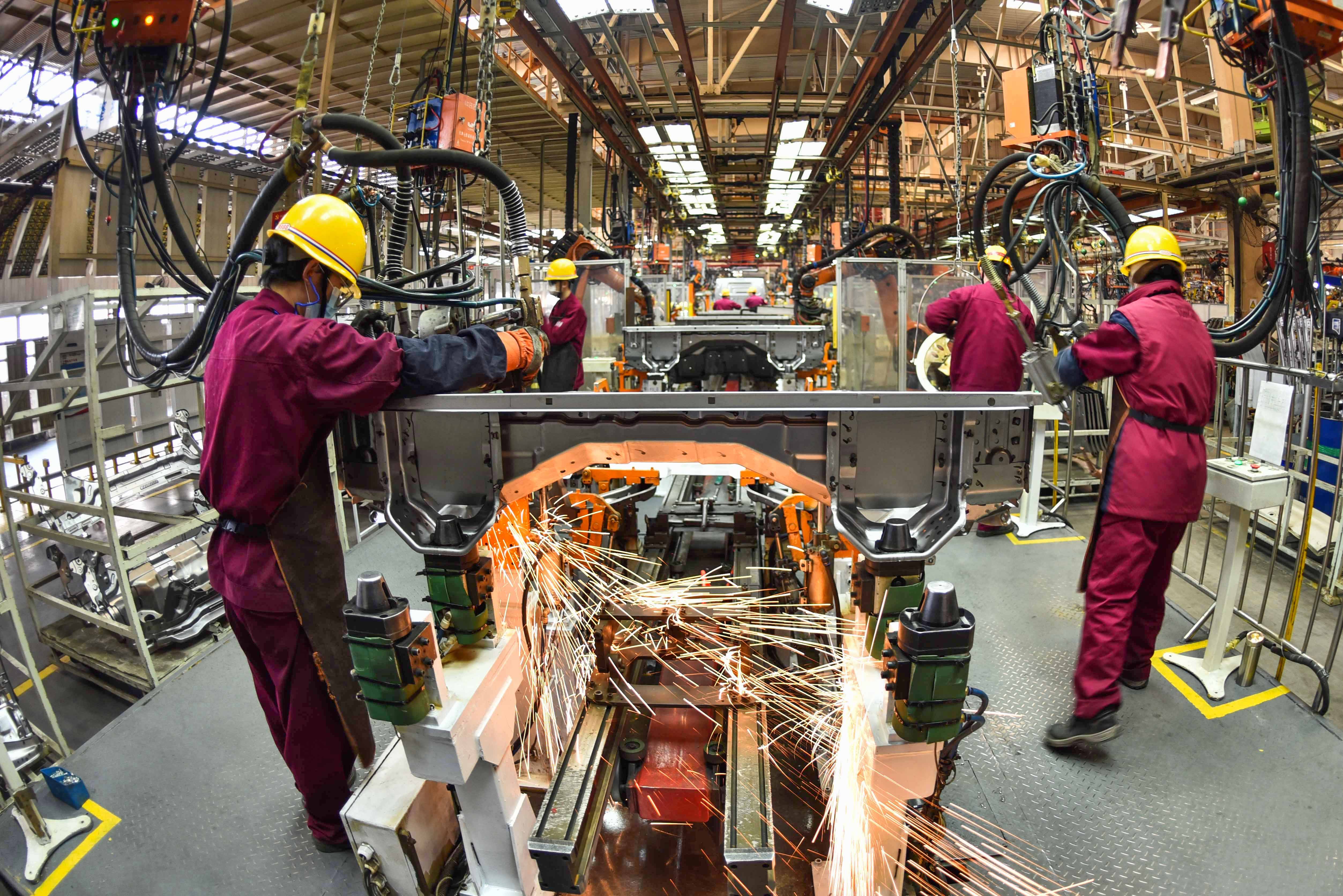BEIJING — China announced a gross domestic product growth target of “around 5.5%” for 2022, as an annual parliamentary meeting gets underway.
Premier Li Keqiang revealed the figure in a speech on Saturday morning local time. It is not unusual for the official GDP target to be approximate.
Other economic targets Li announced, for employment and inflation, were the same as last year’s.
However, he said the deficit-to-GDP ratio would be 2.8% this year, lower than last year’s 3.2%. He expects fiscal revenue to grow in 2022, and that the government can use profits from state-owned enterprises, allowing a spending increase of more than 2 trillion yuan ($316.5 billion) in 2022 over 2021.
Total central government expenditures for the general public budget are expected to rise by 14.3% to 13.40 trillion yuan this year, China’s Ministry of Finance said in a separate report released Saturday about the national budget for the year. That includes a plan for a 7.1% increase in defense spending.
China will target an unemployment rate in cities of “no more than 5.5%” and a consumer price index of “around 3%,” according to Li. He added the country plans to add “over 11 million new urban jobs” — also the same figure as last year.
“A comprehensive analysis of evolving dynamics at home and abroad indicates that this year our country will encounter many more risks and challenges, and we must keep pushing to overcome them,” he said, according to an official English-language version of his remarks. “The harder things get, the more confident we must be, and the more solid steps we must take to deliver outcomes.”
Li’s closing remarks included a statement on how China would “set the stage” for the Chinese Communist Party’s 20th National Congress. That meeting, expected in the fall, is set to give President Xi Jinping an unprecedented third term.
Stimulus plans
Economists widely expected the GDP target to be set at about 5% or slightly higher. They want details about stimulus plans for an economy that has slowed significantly.
A target of “around 5.5%” GDP growth comes on the high end of those expectations. In a separate report Saturday, the national economic planning agency said “achieving this goal will require arduous efforts.”
Li said Saturday that to reach this year’s economic targets, China needs to pursue “prudent and effective macro policies,” with “flexible and appropriate” monetary policy. Li said the yuan’s exchange rate “will be kept generally stable at an adaptive, balanced level.”
The yuan has strengthened to near four-year highs against the U.S. dollar in the last few weeks.
China’s economic growth softened in the fourth quarter to a 4% year-on-year increase, despite full-year growth of 8.1%.
The country was the only major economy to grow in 2020, while the rest of the world struggled with the coronavirus pandemic.
But sluggish consumer spending has yet to fully recover from the pandemic, and fallout from Beijing’s regulatory crackdown on tech and real estate have dragged on growth. China’s stringent “zero-Covid” policy, with abrupt lockdowns and travel restrictions, has also weighed on the economy.
In the last two weeks, the heads of government ministries have spoken of plans for more economic support, especially for small businesses and consumers.
On consumption, Premier Li said Saturday the government will “boost personal incomes through multiple channels, improve the income distribution system, and increase people’s spending power.”
Other than support for purchases of new energy vehicles and more energy efficient home appliances in rural areas, Li did not name specific measures.
On social welfare, Li said government subsidies for basic medical insurance for rural and unemployed urban residents will be increased by an average of 30 yuan per person ($4.76), and subsidies for basic public health services will increase by an average of 5 yuan per person.
Foreign investment, Taiwan
Li said generally that China will work to fully implement changes to a foreign investment blacklist. The latest version of the list allows foreign businesses greater ownership in industries such as passenger car manufacturing.
He said China will encourage more foreign investment in higher-end manufacturing, research and development, modern services, and within the central western and northeastern regions of China.
On Taiwan, Li said that Beijing “will advance the peaceful peaceful growth of relations across the Taiwan Strait and the reunification of China. We firmly oppose any separatist activities seeking ‘Taiwan independence’ and firmly oppose foreign interference.”
As is often the case in official statements, Li did not mention other countries by name.
The “Two Sessions” is an annual meeting of the Chinese People’s Political Consultative Conference, an advisory body, and the National People’s Congress legislature in Beijing.
While largely symbolic, the meetings draw delegates from around the country to approve and announce national economic policies for the year ahead. Those include targets for GDP growth, employment, inflation, deficit and government spending.
This year, the Two Sessions will last about a week, with proceedings set to wrap up on March 11.
